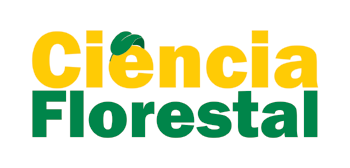ABSTRACT
This study aimed to evaluate different substrates on seed germination and seedling emergence of Luehea divaricata. The study was conducted at the Viveiro Florestal, DCFL, Universidade Federal de Santa Maria, RS. The fruits were collected from eight mother trees in the Morro Cerrito, Santa Maria, in July 2010. After processing, the seeds were stored in cold storage in paper bags for 4 months for the study of emergence, and 7 months for the evaluation of seed germination. Five substrates were evaluated for germination (T1: Roll paper, T2: On blotting paper, T3: Between blotting paper, T4: On sand: T5: On vermiculite) with four replications and four treatments for emergency (T1 : 100% peat, T2: 80% peat and 20% carbonized rice husk, T3: 60% peat and 40% carbonized rice husk, T4: 40% peat and 60% carbonized rice husk) with five replicates. We used a randomized experimental design. Analyzed variables were: germination (G), germination speed index (GSI) and mean time to germination (TMG) in the laboratory, and emergence was analyzed by the percentage of emergency (E), speed of emergence index (SEI) and mean emergence time (TME) in the nursery. The onset of germination occurred on the 6th day, the first count could be performed at 18 days, and assessments closed 35 days after the experiment. Moreover, the substrate over vermiculite (T5) had the highest percentage of G and IVG, corresponding to 42% and 0,678, respectively, while that T2 had the lowest TMG (14.80 days). The seedling emergence began at 21 days after sowing, being terminated at 70 days. The T1 and T2 showed the highest values of E, 84.37%, 91.87%, respectively, differing from T3 and T4. Furthermore, treatment T2 also showed the higher values of IVE (0.98) and TME (33.54 days). Therefore, the substrate vermiculite is indicated for seeds germination, and for seedling emergence, the substrates 100% peat and the mixture of 80% peat and 20% carbonized rice husk.
Keywords:
açoita-cavalo; native species; forest seeds; forest nursery
